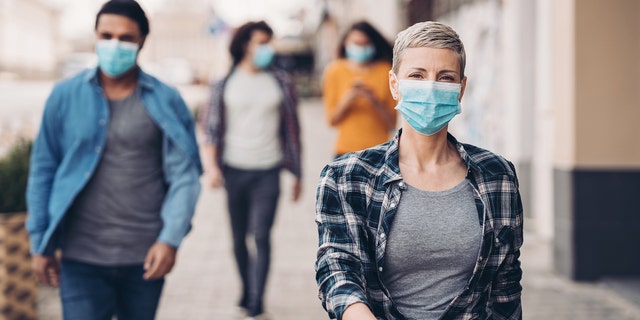While deaths from the coronavirus in the U.S. are mounting rapidly, public health experts are seeing a flicker of good news: The second surge of confirmed cases appears to be leveling off.
Scientists aren’t celebrating by any means, warning that the trend is driven by four big, hard-hit places — Arizona, California, Florida and Texas — and that cases are rising in close to 30 states in all, with the outbreak’s center of gravity seemingly shifting from the Sun Belt toward the Midwest.
Some experts wonder whether the apparent caseload improvements will endure. It’s also not clear when deaths will start coming down. COVID-19 deaths do not move in perfect lockstep with the infection curve, for the simple reason that it can take weeks to get sick and die from the virus.
COVID-19 PATIENT DIDN’T RECOGNIZE BODY AFTER DOUBLE TRANSPLANT
The future? “I think it’s very difficult to predict,” said Dr. Anthony Fauci, the government’s foremost infectious-disease expert.
The virus has claimed over 150,000 lives in the U.S., by far the highest death toll in the world, plus more than a half-million others around the globe.

Scientists say the outbreak’s center of gravity is seemingly shifting from the Sun Belt toward the Midwest. (iStock)
Over the past week, the average number of COVID-19 deaths per day in the U.S. has climbed more than 25 percent, from 843 to 1,057. Florida on Thursday reported 253 more deaths, setting its third straight single-day record, while Texas had 322 new fatalities and California had 391.
The number of confirmed infections nationwide has topped 4.4 million, which could be higher because of limits on testing and because some people are infected without feeling sick.
In other developments:
— The collateral damage from the virus mounted, with the U.S. economy shrinking at a dizzying 32.9 percent annual rate in the April-June quarter — by far the worst quarterly plunge on records dating to 1947. And more than 1.4 million laid-off Americans applied for unemployment benefits last week, further evidence that employers are still shedding jobs five months into the crisis.
— Amid the outbreak and the bad economic news, President Trump for the first time publicly floated the idea of delaying the Nov. 3 presidential election, warning without evidence that increased mail-in voting will result i

